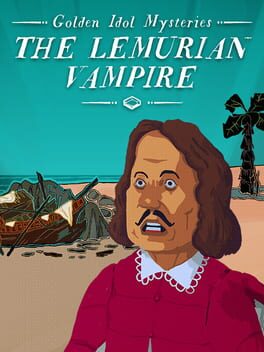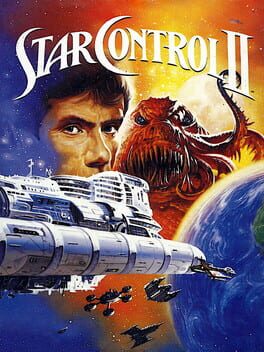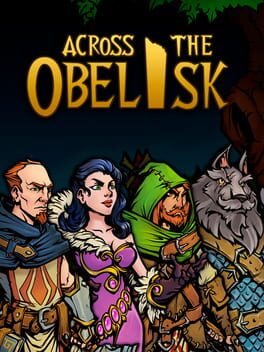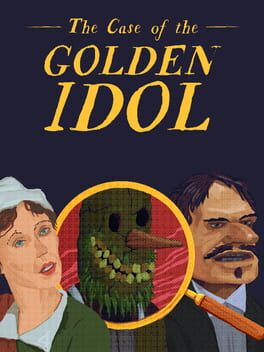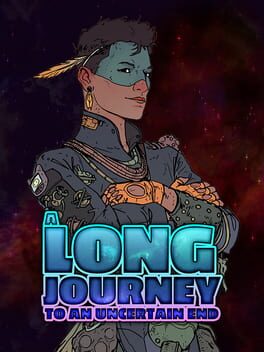Fantasysci5
8 reviews liked by Fantasysci5
There's some bullshit here with the second and third puzzles requiring very specific words in certain spots that I really don't feel is fair especially cause there are also synonyms in the same clue list. That said, still mighty fun figuring things out and a decent enough swan song for the game considering this is the final DLC.
Star Control II
1992
In my first Citizen Sleeper review, I expressed a hope that another game could be build on the strong mechanical foundation that Citizen Sleeper created but didn't quite maximize. DLC would seem like a great way to do that, tying a new story into Citizen Sleeper's world. Tragically, the DLC we got fails to meet my hopes in so many ways.
To begin, the choice to release a series of self-contained "episodes" plays directly against the strength of the form. Modular narrative games shine because they let the player explore a possibility space of story and construct their own understanding of the game-world out of the path they find through that space. Citizen Sleeper's base game already struggles to take advantage of this, with little variation in the way stories play out and no connection between those stories, but the DLC is much worse. It's so small that it's forced into linearity. There's simply not enough room for multiple meaningful paths.
Since it can't use its mechanics to foster a sense of modularity and exploration, it instead uses them for raw difficulty. It expects to be played in a late-game save with easy access to cash, food, and repairs, so mostly what this means is making a lot of high-difficulty dice rolls and obtaining a bunch of one particular item. Unfortunately, it's entirely possible to beat the base game without having a source of that item in the quantity demanded, so the wrong build (mine!) can get locked out of the best ending. It can still be completed, mercifully, but it's a totally unnecessary dagger of frustration.
Since this is notionally a narrative-focused game, I should mention: the plot is fine. It's a bit more simplistic than the chewier parts of the base game, and it suffers greatly from being unable to include any of the characters you likely befriended, but if you think of it as another quest alongside all those in the base game it's solidly in the middle of the pack. But this isn't a novel, or a collection of short stories; it's a game, and as such I expect it to do something interesting with its mechanics.
(And no, the copy editing did not improve.)
To begin, the choice to release a series of self-contained "episodes" plays directly against the strength of the form. Modular narrative games shine because they let the player explore a possibility space of story and construct their own understanding of the game-world out of the path they find through that space. Citizen Sleeper's base game already struggles to take advantage of this, with little variation in the way stories play out and no connection between those stories, but the DLC is much worse. It's so small that it's forced into linearity. There's simply not enough room for multiple meaningful paths.
Since it can't use its mechanics to foster a sense of modularity and exploration, it instead uses them for raw difficulty. It expects to be played in a late-game save with easy access to cash, food, and repairs, so mostly what this means is making a lot of high-difficulty dice rolls and obtaining a bunch of one particular item. Unfortunately, it's entirely possible to beat the base game without having a source of that item in the quantity demanded, so the wrong build (mine!) can get locked out of the best ending. It can still be completed, mercifully, but it's a totally unnecessary dagger of frustration.
Since this is notionally a narrative-focused game, I should mention: the plot is fine. It's a bit more simplistic than the chewier parts of the base game, and it suffers greatly from being unable to include any of the characters you likely befriended, but if you think of it as another quest alongside all those in the base game it's solidly in the middle of the pack. But this isn't a novel, or a collection of short stories; it's a game, and as such I expect it to do something interesting with its mechanics.
(And no, the copy editing did not improve.)
80 Days
2014
I write this journal having finished my run in the 80 Days in 80 Days race that I organized. It took me 68 days, both in the real world and in the game. This experience, and watching so many people go through it with me, has given me a new appreciation for both the successes and the failings of this game.
Plunging several dozen people into it, many of whom had never played before, with other peoples' routes to compare themselves to has thrown into relief just how frustrating the 80 Days' foibles can be. There are a number of UI issues that create pure misery, especially in the context of a game with a constantly-ticking clock. Why is it to hard to tell that you can often purchase extra luggage? Why does clicking on the background boot you from the market? Why does the game allow you to pay good money to accelerate a departure you can't afford anyway?
Despite all of this, I'm still convinced this is a masterpiece. These are ultimately quibbles—they undeniably suck for first-time players, but they're easy enough to learn to avoid. The other thing this race has taught me is just how much variety is packed into the game. I've kept a map of everyone's routes, and it's crisscrossed all over the place. Every player took a unique route and had a unique experience, even on the same starting seed. It's a delight to see, and I wish there was any other game like it.
Plunging several dozen people into it, many of whom had never played before, with other peoples' routes to compare themselves to has thrown into relief just how frustrating the 80 Days' foibles can be. There are a number of UI issues that create pure misery, especially in the context of a game with a constantly-ticking clock. Why is it to hard to tell that you can often purchase extra luggage? Why does clicking on the background boot you from the market? Why does the game allow you to pay good money to accelerate a departure you can't afford anyway?
Despite all of this, I'm still convinced this is a masterpiece. These are ultimately quibbles—they undeniably suck for first-time players, but they're easy enough to learn to avoid. The other thing this race has taught me is just how much variety is packed into the game. I've kept a map of everyone's routes, and it's crisscrossed all over the place. Every player took a unique route and had a unique experience, even on the same starting seed. It's a delight to see, and I wish there was any other game like it.
Across the Obelisk
2021
The balancing of the roguelite deckbuilding is fairly poor, the range of abilities and status effects is needlessly complicated, and I would typically dislike the nature of the roguelite upgrades this game offers because they artificially increase playtime without adding interesting variation (i.e you just died, but now you can add +1 to all melee attacks and go again..).
Having said that, roguelike deckbuilding is an inherently satisfying genre that's hard to truly get wrong - and Across the Obelisk saves its many flaws with its one defining feature: online co-op gameplay. Cooperative turn based strategy games are few and far between, and all the nitpicks fade into the background when you try to figure this one out with a friend or two.
As a solo game I don't highly recommend, but in co-op AtO works really well.
Having said that, roguelike deckbuilding is an inherently satisfying genre that's hard to truly get wrong - and Across the Obelisk saves its many flaws with its one defining feature: online co-op gameplay. Cooperative turn based strategy games are few and far between, and all the nitpicks fade into the background when you try to figure this one out with a friend or two.
As a solo game I don't highly recommend, but in co-op AtO works really well.
It's not quite Return of the Obra Dinn, but if you want more of that sort of incomplete information, contextual, detective puzzle solving - the The Case of the Golden Idol should be high on your list of games to play.
The scenes are wonderful, the storyline builds in mystery and intrigue at an exponential rate, and the deaths in each of the 12 chapters are intriguing cases to solve. My one warning would be that it is a little easy to "brute force" the cases, but the game is much more interesting if you avoid doing that. You will understand what that means if you've played/are playing the game.
The scenes are wonderful, the storyline builds in mystery and intrigue at an exponential rate, and the deaths in each of the 12 chapters are intriguing cases to solve. My one warning would be that it is a little easy to "brute force" the cases, but the game is much more interesting if you avoid doing that. You will understand what that means if you've played/are playing the game.
Cloudpunk
2020
Really nice visuals but the great cinematics from the trailer are sadly extremely sparse in the game.
The story and characters are pretty good, but not quite enough for the game to stand on its own, and there's so much side quest dialog it starts to drag to read it all.
The game play is like a very lightweight FTL. I had fun with it but little in the way of depth or challenge.
The story and characters are pretty good, but not quite enough for the game to stand on its own, and there's so much side quest dialog it starts to drag to read it all.
The game play is like a very lightweight FTL. I had fun with it but little in the way of depth or challenge.
